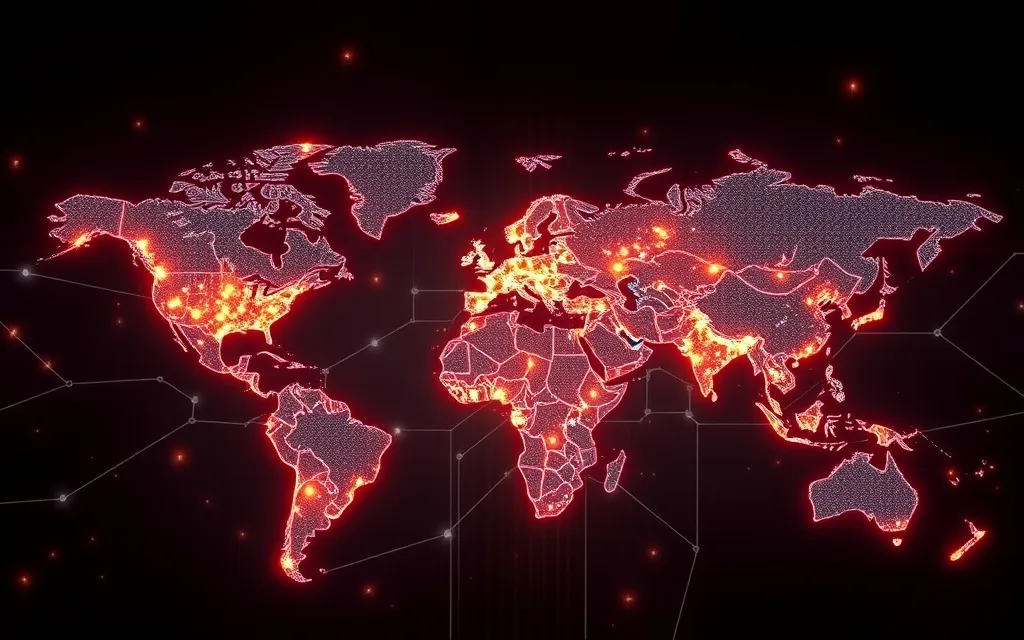
2024-11-13T04:00:00+00:00
In today's fast-paced global arena, artificial intelligence (AI) is not just a technological marvel but a transformative force reshaping international relations. As countries leverage AI for strategic supremacy, the intricate dance between AI geopolitics and digital security challenges becomes more pronounced. This article explores the complexities of AI geopolitics, delving into worldwide AI strategies, the cybersecurity landscape, and the international policy environment.
AI in cybersecurity is a double-edged sword. On one side, AI strengthens defense mechanisms by automating threat detection and response, bolstering defenses against cyberattacks. Yet, paradoxically, it also equips cybercriminals with tools for sophisticated AI-driven attacks. According to Google Cloud's Cybersecurity Forecast for 2025, AI will simultaneously aid defenders and attackers. This duality necessitates advanced cybersecurity measures to counter AI-induced threats effectively.
Geopolitical tensions heavily impact digital security. Countries like Russia, China, Iran, and North Korea are expected to engage in intricate cyberattacks motivated by geopolitical agendas. The surge in ransomware and data-stealing malware adds layers of complexity to the digital security landscape. As nations jostle for technological dominance, the geopolitical rivalry over AI governance could lead to fragmented digital ecosystems, complicating global AI regulation harmonization.
AI's strategic application is becoming a linchpin in national security frameworks. The Biden administration's National Security Memorandum on AI underscores the significance of cutting-edge AI models for national defense. These models, versatile in various applications, are crucial for sustaining U.S. AI leadership. The memorandum advocates for attracting AI talent, augmenting infrastructure, and bolstering counterintelligence, reflecting a robust AI strategy.
As AI becomes integral to national security, cybersecurity in AI is a global necessity. Nations must emphasize cloud security, fortify identity management, and brace for quantum computing threats. Continuous threat monitoring and adaptive security strategies are vital to combat AI-powered cyberattacks. The U.S. and EU's Trade and Technology Council (TTC) exemplifies transatlantic collaboration in AI, promoting democratic trade, technology, and security approaches.
The global AI policy landscape reveals contrasting governance approaches. The EU champions regulations like the GDPR and AI Act, focusing on risk-based AI regulation and fair digital markets. Conversely, the U.S. favors a light-touch governance approach, prioritizing innovation with minimal regulation. This divergence complicates efforts to achieve global AI alignment, particularly amid increasing technological decoupling and geopolitical tensions.
As AI reshapes global power dynamics, nations must skillfully navigate the complex web of AI geopolitics and digital security challenges. Collaborative efforts, such as initiatives like AIxGEO, are crucial to tackling issues like cyberattacks and disinformation. However, techno-nationalism and protectionist policies threaten global cooperation. To truly harness AI's potential, countries must balance innovation and regulation, ensuring AI becomes a force for good in the digital realm.
In conclusion, the intersection of AI geopolitics and digital security challenges demands a nuanced strategy. Nations must craft comprehensive global AI strategies that prioritize AI cybersecurity while fostering international cooperation. By addressing these challenges with foresight and collaboration, the global community can pave the way for a secure and prosperous digital future. What are your thoughts on the balance between AI innovation and regulation? Share your insights or explore further readings on how AI is shaping our world.